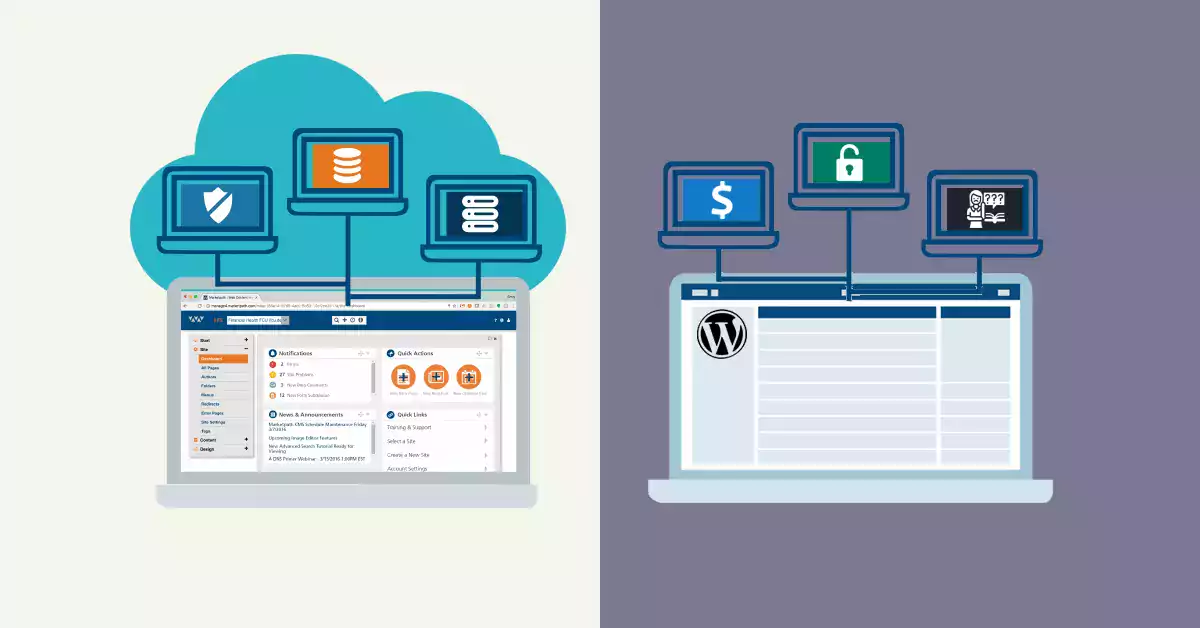
There are two things you need to think about before selecting the kind of hosting: self-hosting vs. managed hosting. The best choice for you will rely on your hosting needs. You must evaluate the requirements of the application, your hosting cost, and your technological capabilities. Numerous server-related responsibilities accompany hosting. It covers everything from setup to ongoing upkeep, safety, backups, and more.
This article discusses managed vs. self-hosting and which is better for your company.
Utilizing a private web server to run and manage a website is known as self-hosting. It doesn't come with any extra host maintenance services. Installing and configuring servers are important responsibilities associated with self-hosting. You are in charge of maintenance and server uptime.
With managed hosting, most hosting-related tasks are taken care of by the hosting company. A third party maintains the server on which your apps are hosted. Server configuration and upkeep are the responsibility of the hosting company. It covers things like patching servers, scheduling backups, and installing servers. To obtain technical assistance, get in touch with the hosting company. With managed hosting, server burdens are greatly decreased.
Among the managed hosting services are the following:
Optimizing Performance
Compliance assistance
Management of Caches
Monitoring server
Security patches & updates
Database management
Data encryption & Firewall
24/7 technical support
Automatic backup
Let's check out the comparison between the two:
Earnings, search engine rankings, and public perception are all impacted by how well your site performs. According to Google's findings, the bounce rate skyrockets to 90% when a page load time grows from 1 second to 5 seconds. When you host your software on your server, you control how fast it runs. Acceleration methods such as content delivery network (CDN) and caching are a part of it. If you have the necessary technological know-how, you can boost application performance to a high level. With cutting-edge tools and methods, a managed hosting service can guarantee top performance. In times of heavy traffic, the hosting operator will adjust the server settings accordingly. Depending on the countries you're aiming for, you can additionally ask for performance SLAs.
Setting up and configuring the server requires a lot of work. Included in the list of server setup tasks are:
Internal server hardware vs. cloud
Installing the OS.
Check all the boxes on the application
Install necessary services
Assuring firewalls are set up to monitor and log
Vulnerability scanning
Compliance norm
Also, make sure to configure notifications for when the threshold is reached. Capacity resources can be easily added or removed according to demand. With managed hosting, the web host handles all aspects of server configuration.
Data breaches are more likely to occur on an insecure server. On average, it can cost corporations $4.24 million for each event. Your server's applications and data are at risk. It is up to you, as a self-host, to keep these attacks at bay. In addition, you get access to tech assistance that is available 24/7 in case any security issues emerge.
One way to keep an eye on server resources is through server monitoring. It covers a wide range of metrics, such as CPU, memory, disks, and more. When you host your site on your own, you can utilize tools to keep tabs on it. Server stats are made finely transparent to you.
Spending time self-hosting solutions means less time for your essential business operations. Nothing is too big for you to manage on your own. It covers a lot of ground in terms of security, upkeep, and technology. With managed hosting, you can save time and energy while concentrating on what really matters for your company. An entire team of experts oversees your server. Consequently, you have more time to address pressing concerns and expand your firm.
Count on dependable support from industry experts with managed hosting. The hosting package will include assistance. When you self-host, you're totally responsible for fixing any problems that arise.
In self-hosting, there are no ongoing costs. Memory, storage space, as well as other server resources are all things that you pay for. Another thing to consider is whether or not a content delivery network (CDN) is necessary to save latency. The need for additional storage and server capacity becomes apparent as your company expands. A subscription charge is associated with managed hosting costs. A completely managed solution, on the other hand, allows you to remain hands-off.
But still, if you can’t decide which one is the best, get assistance from top hosting websites. However, there are a lot of considerations to consider while deciding between managed hosting and self-hosting. First things first: assess your company's needs, resources, and expertise. When you are technically proficient, self-hosting is a great option. It might be challenging and time-consuming if you don't have the necessary abilities. If you want to give your whole attention to your project, managed hosting is the way to go.